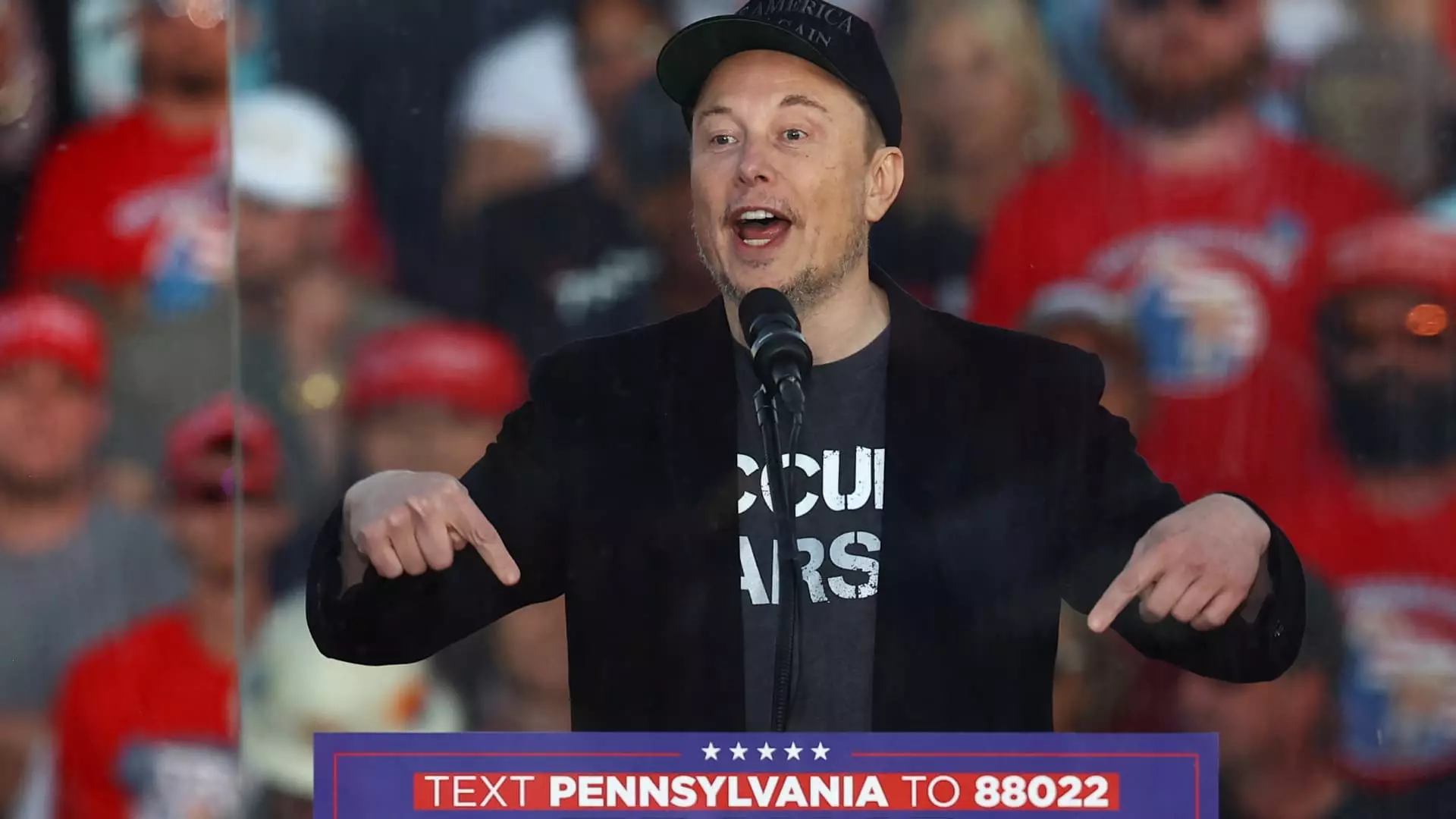Elon Musk, a name synonymous with technological innovation and disruption, has recently waded into the tumultuous waters of American politics by endorsing Donald Trump in the upcoming presidential election. While Musk’s backing of Trump isn’t surprising given their shared penchant for bold and controversial statements, his method of rallying support—through a financial incentive system—raises both ethical and practical concerns. This unusual approach involves a $47 referral bonus offered by Musk’s America PAC to those who can connect swing-state voters to an online petition. Musk’s promotion of this scheme on X (formerly Twitter) underlines the blending of social media influence with political mobilization, showcasing his ability to tap into the digital landscape for tangible gains.
The structure of Musk’s referral program is quirky yet straightforward: for every referred swing-state voter who engages with the petition, the referrer earns a reward. Musk cheekily dubbed it “Easy money,” potentially appealing to both supporters and those indifferent to politics. However, the program’s legitimacy is in question, particularly due to the vague nature of the petition itself. While it claims to champion “First and Second Amendment rights,” it lacks transparency regarding how the collected signatures will be utilized or what follow-up actions will ensue. This obscurity raises alarms about the actual intent behind the initiative—whether it’s rooted in civic engagement or merely a data-collection scheme dressed in a political costume.
Musk’s decision to focus on key swing states—Pennsylvania, Georgia, North Carolina, Nevada, Arizona, Michigan, and Wisconsin—is pivotal. These regions are identified as critical battlegrounds capable of swaying the outcome of the election in favor of either Trump or his Democratic rival, Kamala Harris. By targeting these states, Musk and the America PAC are not only aiming for a quantitative collection of signatures but are also strategically positioning themselves to amplify Trump’s message in a politically divided landscape. However, the underlying goal appears to be the cultivation of a robust database of voter contacts, which could serve various interests in future political campaigns.
This isn’t the first incidence where Musk’s political endeavors have drawn scrutiny. The America PAC faced investigations from the North Carolina Attorney General’s office and the Michigan Secretary of State’s office over previous allegations of misleading practices in gathering voter information. Despite claims of resolving these issues, Musk’s current referral program could be interpreted as an attempt to repackage an old strategy with a new, cash-driven twist. Critics might argue that this commodifies political participation, transforming civic duty into a profitability game that undermines the integrity of the electoral process.
The idea of using financial incentives to engage voters is contentious. On one hand, it could motivate individuals to participate in an election that many may perceive as daunting or unimportant. On the other hand, it raises ethical questions about the commodification of political engagement. Is the act of signing a petition genuinely meaningful if there’s a financial reward tied to it, or does this stifle the intrinsic motivations behind democratic participation? This approach marks a significant departure from traditional grassroots mobilization tactics, suggesting a shift toward a more transactional view of civic involvement.
Musk’s participation in this political campaign highlights an increasing trend where tech moguls wield significant influence in politics. Their capacity to leverage technological platforms for mobilization—while simultaneously profiting from such initiatives—beckons larger questions surrounding the influence of wealth and technology on democratic processes. As Musk continues to promote this unorthodox referral program, it becomes crucial for voters and watchdog organizations alike to critically assess both the motivations and implications of such initiatives on the electorate and the integrity of the electoral process.
While Elon Musk’s referral program may be seen as a means to catalyze political engagement, it ultimately unveils the complexities of merging profit with civic duty. In an era where technology shapes every facet of life, including politics, the need for transparency and ethical considerations has never been more pressing.


Leave a Reply